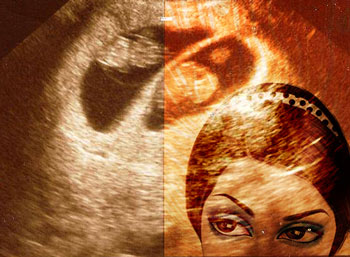Page 1 Page 2 Page 3 Page 4 Page 5

He hesitated. “How are you head-fucked?”
I said, “Can’t you tell?”
He said, “You sound like a person. Mostly.”
I couldn’t tell the genuineness of his sentiment, but I had longed to hear it for so many years. “Do you want the real reason, or the reason I tell everyone?”
“Either.”
I had told my truth to few people, each hearing the story only once: Preston (during that July when I couldn’t stop crying, and he couldn’t stop trying to make me stop), Dr. Hollander (the middle-school shrink with an undeserved degree, who, after hearing my pubescent troubles, gave me three years in a special class for the emotionally disturbed), and, just before he left, Dad, inside the old Camaro with Brian Wilson singing, “Let’s talk about it, wouldn’t it be nice?” Before that night, I hadn’t seen Dad cry.
“Have you ever known someone with an embarrassing medical condition?” I asked, and, not waiting for an answer, continued. “The kind that no one notices, but you feel like you can never hide? It starts eating at you, chewing at your skin from underneath, so you itch all day long. And it’s not the disease that people notice. It’s the itching.”
I wish I could have seen his eyes while he tried to put together a conclusion. He ended up with a cautious, “You’re sick?”
“Terminally,” I said. “A terminal case of self-pity. My itch started when I was seven years old. Take a guess.”
“Your family.”
Though I had asked for it, the closeness of his words stung. Side-effects of pathological lying can include the slow and unnoticed breaking-down of the immune system meant to soften painful truths.
“In a way,” I said. My eyes found the window and a moon verging on full. “Do you have a family?”
“Obviously.”
“You didn’t mention them.”
“Your story sounded more interesting.” A lie — I knew it immediately from the change in tone, a common tell I had overcome a decade earlier.
I opened my mouth and gave him something worthy of his interest.
“You know how people can feel indebted to their family? How they feel they owe them something even when they don’t, or how they need to take care of some stupid family member who can’t manage their own shit — and how it drags them down, always thinking of someone before themselves?”
He said, “I guess.”
I said, “I killed my sister.”
The room went quiet. My eyes stayed on the moon. Someone fell against the wall in the hallway, the sound, in my perception, equivalent to that of the entire house collapsing. I waited for Henry to laugh, or scream, or respond.
He said, “How?” The new crack in his voice gave me an accurate image of Henry at age 13.
“She wanted four children,” I said. I saw Mother, in her infinite distress, standing in my bedroom doorway after one school suspension too many. “And here’s the thing. For a moment, for one moment in time, she was on track.” The mind-picture turned to that of a photograph — Mother, six months pregnant, and Dad, happy in a way I can’t remember him being. “And I fucked it up. I fucked it up, and she told me about it, she screamed it, and that fucked me up, so I suppose she got her revenge.”
Henry’s grip around my waist had loosened so much by that point, he may as well have been holding the air around me. He started to talk, mistaken that he still had a role in the story. “I don’t —”
“Vanishing Twin Syndrome,” I said. I watched the moon with both eyes, unable to close either for fear of the sonograms she had shown me appearing in the black of my eyelids. “During a multi-gestation pregnancy, one fetus dies in-utero. Sometimes, there are complications.” I paused, not for effect, but to let my breath catch up with my brain. “But sometimes it’s simple and clean. The living fetus absorbs the other into itself. That is, one fetus consumes the other, devours the other, takes its life for its own.”
“Bullshit.” Henry pulled his arms from my body, severing our physical connection as he shifted across the bed.
“And she hated me for it,” I said. The music outside grew louder, or did it? “Because she was stuck with me. The head-fucked one who couldn’t sit still, or take piano lessons, or pursue a career with a financial future. So she told me, and it became my embarrassing medical condition. The itch I kept scratching at for years. Every so often, I would break the skin, and some unlucky person would see the blood.”
Henry had left the bed. I hadn’t noticed, too preoccupied with clutching the bed-sheet at my chest so tight between my fingers and looking in the sky for a star upon which I could wish myself back home.
“And I think sometimes, what if the fetus, the one who lives, what if it needs to absorb the other? What if the situation is life-or-death? And I look at Dave, and all his tiny Bad Things and this Very Bad Thing he’s done, and I look at myself, and the therapy bills and the breakdowns and this, this night right here, and I ask myself — are we killing Preston? He has to take care of us. He has to catch us before we fall. How much before we kill him? How much before he’s the vanishing twin?”

